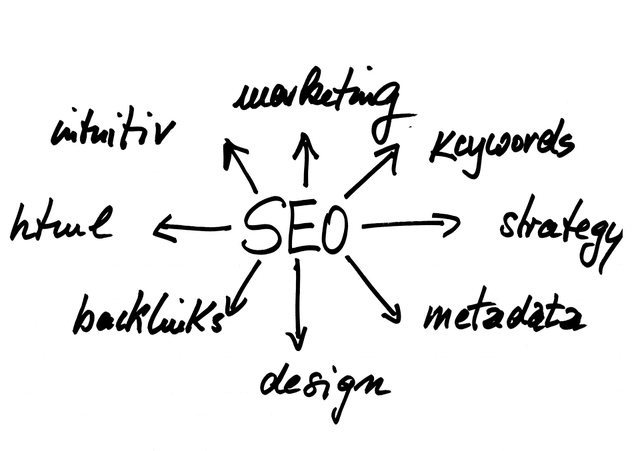New website owners should prioritize SEO Services from day one to ensure online success. Keyword research is vital to identify target terms and optimize content, titles, and meta descriptions. On-page optimization involves creating high-quality, engaging content, optimizing headers, and ensuring a user-friendly interface. Off-page strategies, like building quality backlinks through guest blogging and social media engagement, enhance authority over time. Technical SEO considerations include site architecture, code optimization, and mobile responsiveness for a seamless user experience. Regular analysis using tools like Google Analytics tracks performance and informs improvements. Staying agile with content updates and adapting to search engine trends is crucial for long-term success in the competitive digital landscape.
Launching a new website is an exciting step, but understanding SEO basics is crucial for its success. This comprehensive guide explores essential SEO services tailored for new websites, from foundational keyword research to advanced technical optimizations. Learn how on-page and off-page strategies, combined with high-quality content creation, can propel your site’s ranking. Discover the importance of seamless user experience and continuous performance analysis to stay ahead in today’s competitive digital landscape.
Understanding SEO Basics for New Websites

For new websites, understanding the fundamentals of Search Engine Optimization (SEO) is a game-changer. SEO services for new websites focus on optimizing content and structure to enhance visibility and search rankings on digital platforms. By implementing basic SEO strategies from the outset, website owners can ensure their online presence is optimized for success. This includes keyword research, which involves identifying relevant terms that potential customers might use when searching for products or services similar to what the website offers.
These keywords are then strategically incorporated into web content, titles, meta descriptions, and headers, among other elements. On-page optimization techniques, such as creating high-quality, unique content and ensuring a user-friendly interface, also play a crucial role in boosting SEO for new websites. Additionally, off-page strategies like building quality backlinks from reputable sources can significantly impact a site’s search engine rankings over time.
Keyword Research: The Foundation of Effective SEO

Keyword research is the bedrock upon which successful SEO strategies are built, particularly for new websites. It involves understanding what terms and phrases your target audience uses to search for products or services similar to yours. By employing robust keyword research tools, businesses can uncover valuable insights into user intent, search volume, and competition levels associated with various keywords. This data-driven approach ensures that SEO efforts are focused on the most relevant and effective keywords, driving organic traffic to the website.
For new websites, comprehensive keyword research is even more critical as it helps establish a strong online presence from the outset. It enables businesses to optimize their content, meta tags, and overall site structure in line with search engine algorithms. As SEO services for new websites aim to boost visibility and rankings, keyword research serves as the compass, guiding strategies that resonate with both search engines and potential customers.
On-Page Optimization Techniques for Maximum Impact

When it comes to on-page optimization, new websites have a unique opportunity to lay a strong foundation for their online visibility. The key lies in implementing effective SEO services tailored for fresh launches. This includes optimizing meta titles and descriptions, ensuring each page has a distinct and relevant focus keyword, and crafting compelling content that engages users while aligning with search intent. By utilizing header tags appropriately, incorporating internal linking strategies, and enhancing image alt text, new websites can significantly boost their search engine rankings.
Additionally, on-page optimization involves improving website structure and navigation to enhance user experience. A well-organized site hierarchy, responsive design for mobile compatibility, and fast loading speeds are all critical factors that search engines consider when evaluating a website’s quality. These techniques not only contribute to better SEO but also encourage visitors to explore more pages, leading to increased engagement and potential conversions.
Creating High-Quality Content That Search Engines Love

When it comes to SEO services for new websites, creating high-quality content is the cornerstone of a successful strategy. Search engines, particularly Google, prioritize content that is informative, engaging, and relevant to users’ queries. This means crafting well-researched articles, blog posts, or product descriptions that offer genuine value to visitors. By focusing on topics that solve problems or answer questions related to your niche, you attract the right audience and establish your website as an authority in its field.
High-quality content also translates into better user experience, which is a critical factor for search engines like Google. Easy navigation, mobile optimization, and quick loading times not only enhance usability but also encourage visitors to explore more of your site. Regularly updating your content with fresh, relevant information signals to search engines that your website is active and dynamic, increasing its chances of appearing higher in search results.
Off-Page SEO Strategies to Boost Website Authority

Off-page SEO is a crucial component in building the authority and visibility of new websites. It involves strategies that extend beyond the site itself, focusing on earning high-quality backlinks from reputable sources. This process is akin to cultivating a vibrant network—the more influential and relevant connections your website makes, the greater its authority in the eyes of search engines. One effective tactic is guest blogging, where you contribute valuable content to established websites within your industry. This not only exposes your site to a new audience but also encourages potential links back to your page.
Additionally, leveraging social media platforms can significantly enhance off-page SEO efforts. By actively engaging with influencers and industry leaders, you increase the chances of them sharing your content, which can lead to valuable backlinks. Social signals send positive indicators to search engines, suggesting that your website is worthy of higher rankings. Remember, building authority takes time and consistent effort, but implementing these off-page SEO strategies can be a game-changer for new websites seeking to establish themselves in the digital landscape.
Technical SEO Considerations for Seamless User Experience

When it comes to SEO services for new websites, technical considerations are paramount in ensuring a seamless user experience. A well-optimized website structure and clean code are fundamental. Proper site architecture allows search engines to easily navigate and index pages, leading to better visibility. For instance, using semantic HTML tags, creating intuitive URL structures, and implementing efficient internal linking strategies enhance both the user interface and search engine crawling efficiency.
Additionally, fast loading times and mobile responsiveness are critical. Optimizing images, minifying code, leveraging browser caching, and choosing a reliable hosting provider can significantly reduce page load speeds. A mobile-friendly design ensures that users across various devices enjoy consistent access to content without hindrance. These technical SEO practices not only attract search engines but also foster user engagement, ultimately contributing to better rankings and higher traffic for new websites.
Measuring and Analyzing SEO Performance

Measuring and analyzing SEO performance is a crucial step in understanding the effectiveness of your SEO services for new websites. By utilizing robust analytics tools, such as Google Analytics, you can track key metrics like organic traffic, keyword rankings, bounce rates, and conversion rates. These insights enable data-driven decisions that optimize your website’s visibility and user experience.
Regularly reviewing these metrics allows you to identify trends, pinpoint areas of improvement, and adapt your SEO strategies accordingly. For instance, a sudden drop in organic traffic might signal an algorithm update or a content gap, prompting adjustments to your content strategy or technical SEO optimizations. This continuous monitoring ensures that your new website stays on track with its SEO goals and remains competitive in the digital landscape.
Continuous Improvement: Staying Ahead in the SEO Game

In the dynamic landscape of online visibility, continuous improvement is the lifeblood of successful SEO services for new websites. Search engine algorithms evolve rapidly, and staying ahead involves a commitment to ongoing optimization. This includes regular content updates that keep information fresh and relevant, as well as close monitoring of performance metrics to identify areas for enhancement. By adopting an agile approach, website owners can adapt quickly to algorithm changes and emerging trends, ensuring their digital presence remains competitive.
Additionally, continuous improvement involves staying informed about industry best practices and leveraging cutting-edge SEO strategies. This proactive mindset encourages experimentation with new techniques, such as voice search optimization, enhanced content formats, and mobile-first indexing. By embracing these innovations, new websites can attract a broader audience, improve user experience, and ultimately climb the ranks in search engine results pages.
